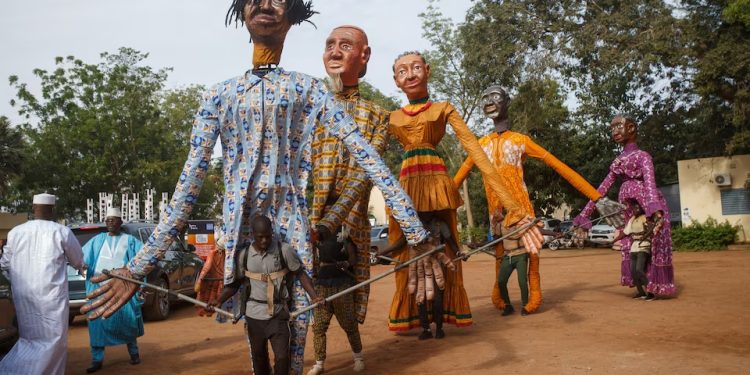By Reuters
Listeners swayed as the celebrated Malian duo Amadou and Mariam sang from a stage on the banks of the Niger River at an annual festival coloured this year by political shifts roiling West Africa.
Tens of thousands of people from Mali and elsewhere in the region flock each February to the town of Segou, 230 km (143 miles) northeast of the capital Bamako, for a week-long showcase of Malian music, visual art, theatre and dance.
But this year’s edition of the Festival sur le Niger took place against the backdrop of Mali’s exit – along with Burkina Faso and Niger – from the West African bloc ECOWAS and uncertainty about when the military junta would make good on its vow to organise elections.
Mali and its neighbours have for more than a decade battled jihadist groups allied to Islamic State and al Qaeda while grappling with a much longer history of Tuareg-led rebellion in the north.
The festival in Segou, less than 100 km (62 miles) from areas where jihadist groups are active, is “a forum…for forward-looking thinking on current concerns” including “the very crisis that the Sahel is going through,” said attendee Vincent Koala, a cultural consultant from Burkina Faso.
“It’s all about reuniting the population after many crises.”
Days before the festival kicked off in early February, Mali, Niger and Burkina Faso formally left ECOWAS, an economic and political grouping which had been urging the three junta-led countries to return to democratic rule.
They have announced a new confederation known as the Alliance of Sahel States (AES) and authorities dubbed this year’s festival the “Week of AES Fraternity.”
Portraits of the three junta leaders were splashed on posters throughout the grounds, a jarring militaristic note amid the arts and crafts stands.
ARTS SCENE THREATENED
Mali is a renowned hub of culture in the region, having hosted several important festivals on the international arts circuit.
“Mali is a global cultural powerhouse,” said the recently-appointed Culture Minister Mamou Daffe, who launched the Segou festival in 2005.
“We have the most beautiful stories, we have beautiful sites… It is a reservoir. It is more important than gold and oil.”
But that vibrant scene is under threat.
Another of Mali’s festivals — The Festival in the Desert outside Timbuktu — once attracted thousands of visitors, but it has not been held since 2012 when jihadists entered the ancient city.
The Rencontres de Bamako photography biennale took place from mid-November until mid-January without past sponsor France, meaning it had just a fraction of its usual funding. Anti-French sentiment has soared under Mali’s junta, which like its counterparts in Burkina Faso and Niger has kicked out French forces.
The junta has partnered with Russian mercenary forces to try to improve security, and one boat on the Niger River was flying Malian and Russian flags.
A Russian mercenary base is located roughly 20 km (12 miles) from Segou, according to two consultants.
Junta leader Assimi Goita has designated 2025 the “Year of Malian Culture.”
It may not seem like an obvious focus for a government tackling insecurity, economic tumult and the aftermath of some of its worst flooding in years.
But with the country’s diplomatic ties in flux, Daffe told Reuters that arts and culture can “promote exchanges” within and beyond the country.
“The festival is a great example of Mali’s opening up to the outside world,” he said.









